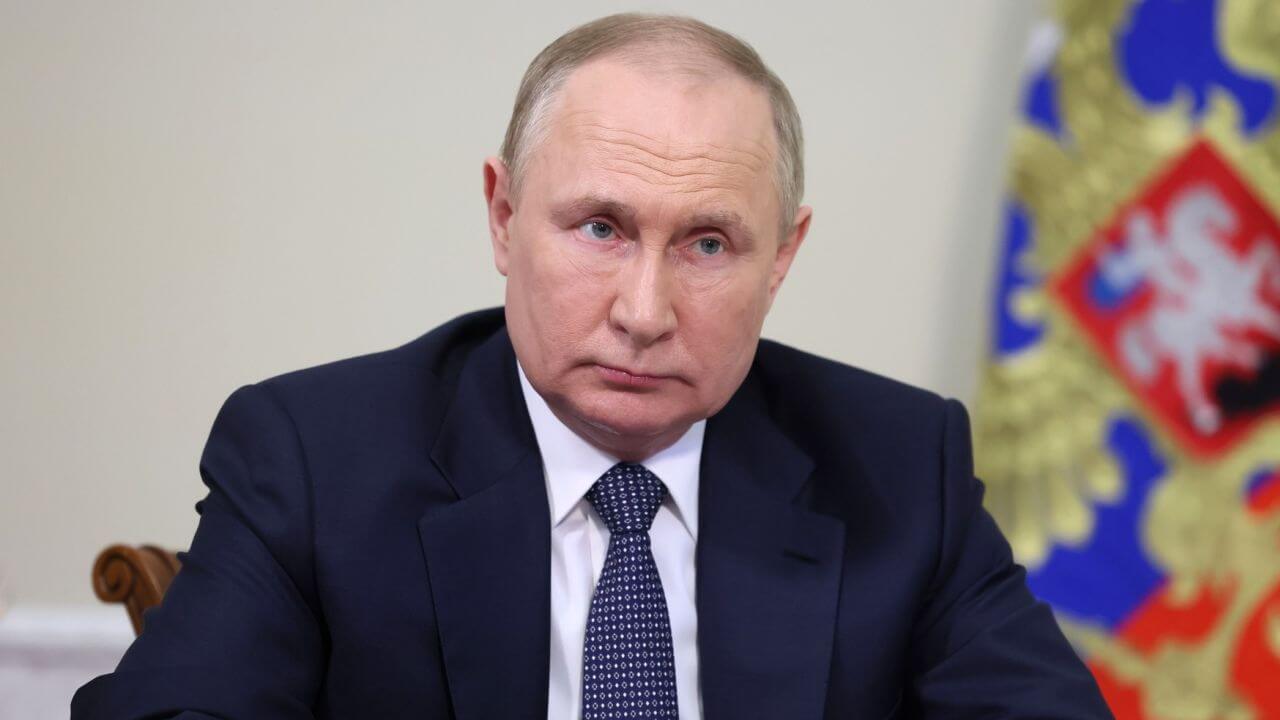Russia launched a criminal case against the International Criminal Court (ICC) after its chambers issued an arrest warrant against President Vladimir Putin. This clearly shows Moscow’s intention to defy the Court’s authority, with the investigative authorities calling the prosecution “obviously illegal.
Russian Foreign Ministry Spokesperson Maria Zakharova delivered the first reaction of the ministry on Telegram, saying, “Russia is not a party to the Rome Statute of the International Criminal Court and bears no obligations under it.”
Thus, the following question arises: As Russia is not one of the 123 States Parties to the ICC statute, does the arrest warrant really have any legal implications for Putin?
Following issuance of arrest warrants by #ICC pre-trial chamber in #Ukraine situation, #ICC Prosecutor #KarimAAKhanKC spoke to @CNN. pic.twitter.com/ChWeLDTpUe
— Int'l Criminal Court (@IntlCrimCourt) March 18, 2023
ICC’s Jurisdiction
The ICC statute or Rome Statute gives the court jurisdiction over four types of crimes — genocide, crimes against humanity, war crimes, and the crime of aggression. However, the exercise of this jurisdiction is limited to its States Parties.
Moscow signed the Rome Statute in 2000; however, it never ratified the document and withdrew entirely in 2016. While Ukraine is not a party to the Rome Statute, it has previously given the Court jurisdiction to criminally prosecute crimes committed within its jurisdiction.
Officially wanted by the ICC: putin and lvova-belova.
— Defense of Ukraine (@DefenceU) March 17, 2023
Kidnappers of Ukrainian children.
The Hague is waiting for them. pic.twitter.com/q0yaWHNOXR
According to ICC President Piotr Hofmanski, Russia’s non-party status is “completely irrelevant” as the Court can exercise jurisdiction over crimes committed in the territory of a state party or a country that has previously accepted the jurisdiction. “Ukraine has accepted the ICC twice — in 2014 and then in 2015,” he added.
Hofmanski also said that 43 states had approached the Court concerning the Ukraine conflict, which “formally triggered” the jurisdiction.
States Parties’ Obligations
Wheels of Justice are turning: I applaud the ICC decision to issue arrest warrants for Vladimir Putin and Maria Lvova-Belova over forcible transfer of Ukrainian children. International criminals will be held accountable for stealing children and other international crimes.
— Dmytro Kuleba (@DmytroKuleba) March 17, 2023
While Putin can argue against the ICC’s jurisdiction over his alleged crimes, by ratifying the Rome statute, the 123 state parties are obligated to arrest Putin and send him to The Hague to face trial if he enters their respective territories.
That said, Putin is unlikely to expose himself to this possibility.
This, however, complicates his ambitions to extend global influence, given that he cannot attend any bilateral or multilateral discussions in these countries.
ICC’s Past Indictments
In the past, the ICC has indicted 15 others, including war criminals and former heads of state such as former Serbian President Slobodan Milošević.
Nonetheless, Putin is only the second incumbent president that the Court has tried to prosecute. The first was Sudanese President Omar al Bashir, who has continued evading the Court for 13 years.
However, Putin should be concerned that his aides could also face the wrath of the ICC, many of whom maintain close personal, political, and professional ties in the Middle East and Europe. Hofmanski said in his interview with Al Jazeera that the case “can be expanded” and “new allegations can be formulated.”
The International Criminal Court (ICC) issued an arrest warrant on Friday against Russian President Vladimir Putin, accusing him of being responsible for war crimes committed in Ukraine.
— Jackson Hinkle 🇺🇸 (@jacksonhinklle) March 17, 2023
Still no arrest warrant from the ICC for war criminals like Bush, Clinton or Obama.
In addition, Putin can be tried before the Court if he is ousted from power and surrendered by the new government to the ICC, like in the case of Slobodan Milošević.
India’s G20 Presidency
Luckily for Putin, the current G20 Presidency lies with India, which is not a party to the ICC. New Delhi is also unlikely to give the cold shoulder to Putin owing to historic India-Russia ties and the controversial neutral stand it has maintained over the course of the war in Ukraine.
However, the arrest warrant complicates matters for India, and will likely provide impetus to the US campaign to push New Delhi to take a stronger stand against Putin.

